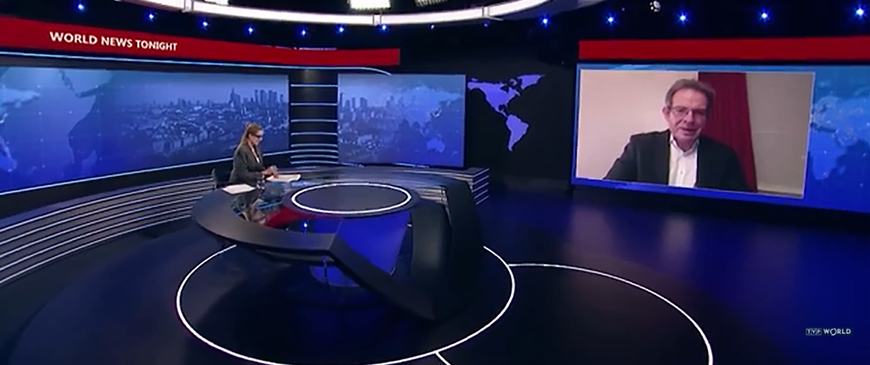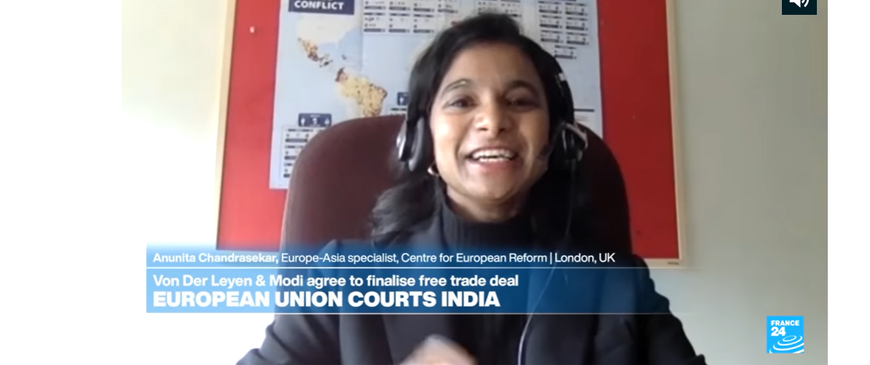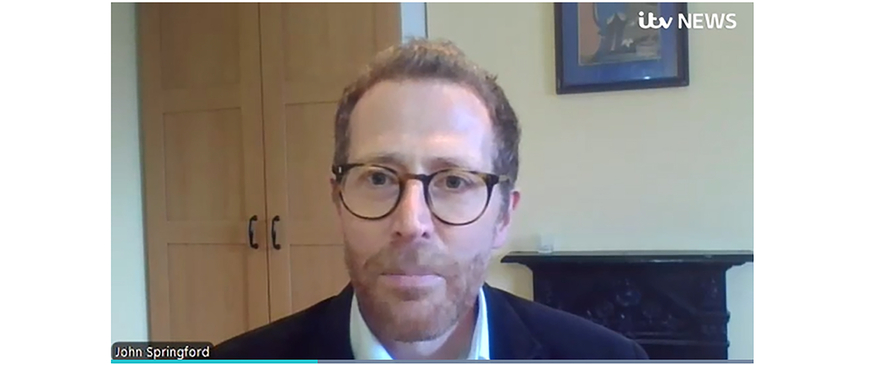Press
Padol ďalší pilier. Poľskí konzervatívci ovládli Najvyšší súd
03 July 2018
SME Svet
„Komisia chcela zvýšiť tlak na Poľsko a tiež nie je úplne spokojná s tým, ako na doterajšie výhrady Poľsko reagovalo, väčšinou to boli len kozmetické ústupky,“ hovorí pre SME analytička Centra pre európsku reformu Agata Gostyńska-Jakubowska.
The real threats to the EU
02 July 2018
Project Syndicate
The UK’s concern is understandable: evidence is mounting of the likely damage a departure from the single market and customs union will do to the UK economy. According to new research from the Centre for European Reform, the UK economy is already 2.1% smaller than it would have been had voters chosen to remain. The hit to public finances totals £440 million ($579 million) per week.
The Jersey option looks good for Brexit Britain. It isn't.
02 July 2018
Financial Times
If the frenzied speculation is true, this week’s special UK cabinet meeting will end with Britain asking for a customs union with the EU plus accepting its regulation of goods, while rejecting single market rules on services and freedom of movement. This model is generally called the “Jersey option” [article by Sam Lowe, research fellow at the Centre for European Reform] after the British crown dependency in the English Channel, which already has such a relationship with the EU.
Aljazeera: EU reform, migration and the economy
30 June 2018
John Springford, the deputy director of the Centre for European Reform, says "bringing in more people definitely helps" EU countries economically.
BBC The Real Story: Can the EU Survive?
29 June 2018
John Springford, deputy director of the Centre for European Reform along with Claire jones, Paul Mason and Josef Janning discuss the future of the EU on the BBC's Real Story.
EU leaders reach migration deal
29 June 2018
CBS News
Migration has "been one of the biggest crises that the European Union has faced in a decade where there have been several crises in a row," John Springford, deputy director of the Centre for European Reform, told CBS News.
Fears grow over prospect of Trump 'peace deal' with Putin
28 June 2018
The Times
Ian Bond, a former British ambassador to Latvia who is now director of foreign policy at the Centre for European Reform, said: “There are a lot more ways this can go wrong than right, with Trump cancelling the autumn Nato exercises, accepting the Russian annexation of Crimea and linking trade and security.”
Hard Brexit is unravelling
28 June 2018
The Economist
Charles Grant of the Centre for European Reform, a think-tank, expects these considerations to trigger ministerial resignations this summer. Mr Johnson, who was this week ridiculed even by fellow Tories for flying to Afghanistan to avoid a vote on Heathrow airport (see article), may quit, now that his leadership hopes are going down the pan.
The UK and Europe: What's the cost of Brexit so far?
26 June 2018
E!Sharp
Any reasonable observer will acknowledge that the Brexit vote has curbed economic growth.
NATO's infatuation: Russia, Russia, Russia!
25 June 2018
Defence News
Ian Bond, director of foreign policy at the Centre for European Reform, put it this way in a piece produced by Carnegie Europe: “Russia is a threat to Europe only because Europe allows it to be. Vladimir Putin has been very adept at maximizing the effectiveness of the tools he has, keeping the West off-balance and leaving its leaders with a feeling of impotence.”
10 things you need to know in markets today
25 June 2018
Business Insider
Brexit has slashed Britain's public finances by £440 million a week, according to new research, which found the UK economy is already 2.1% weaker than it would have been if the country voted to stay in the European Union. A report from the Centre for European Reform (CER) found that — thanks to lower tax revenues — the knock-on hit of the vote to leave the EU to public finances has been £23 billion per year.
There is NO Brexit dividend now firms are taking flight
24 June 2018
This is Money
The economy is 2.1 per cent smaller than it would have been had the result gone the other way, according to a new analysis by the respected think-tank the Centre for European Reform. The hit to the public finances is £23 billion a year, or £440 million a week – higher than the £350 million promised on the side of the bus for the NHS.
What are the economic effects of Brexit so far?
24 June 2018
Financial Times
One such model, which gives Hungary a 23 per cent weight in the calculations, is used by John Springford, deputy director of the Centre for European Reform, and suggests that output is now 2.1 per cent lower than it would have been.
Theresa May's Brexit plan: Hiding in plain sight
24 June 2018
Financial Times
The prime minister is edging towards something that looks much like a single market in industrial goods, to counter the need for regulatory checks at the Irish border — or any of Britain’s ports — after Brexit. “It is a proposal under current consideration,” says Charles Grant, director of the Centre for European Reform. He wonders whether Mr Johnson and fellow Eurosceptics might quit rather than swallow it.
Brexit: Two years on, are we any closer to actually leaving?
24 June 2018
City A.M
Sam Lowe, research fellow at the Centre for European Reform, agrees - claiming there is “no coherent vision” of what the UK sees as its future relationship with the EU, exacerbated by the factional divisions in Cabinet.
Thousands march in London to demand new EU vote on second anniversary of Brexit
24 June 2018
Fox News
The pro-European think tank the Centre for European Reform concluded that the British economy is 2.1 percent weaker than it would have been if the country voted to remain in the EU, and has hit the country’s public finances at a cost of £440m ($583 million) a week.
Brexit has already slowed UK growth by 2.1%, according to new study
23 June 2018
Fortune
A new analysis has found that the UK’s decision to exit the European Union has already slowed the nation’s economic growth by a cumulative 2.1% as of the first quarter of 2018, compared to likely results had Brexit been rejected two years ago. The study also found that the referendum vote is now costing the British government £440 million ($584 million) per week in lost tax revenue, challenging longtime claims by Brexit supporters that leaving the EU would improve government balance sheets. The study is from the pro-EU, London-based Centre for European Reform.
True cost of Brexit vote 'is £440m every week'
23 June 2018
The Times
The economy is 2 per cent smaller than it would have been had Britain not voted for Brexit, a leading think tank has claimed. The Centre for European Reform (CER) said that the performance of the economy, compared with what it would have been if the 2016 referendum had gone the other way, was significant.
Bruchlinien quer durch Europa
23 June 2018
Wiener Zeitung
Nicht einmal die Visegrad-Vier, die in so manchem westeuropäischen Land oft als schwieriges Gegenüber empfunden werden, sind ein geschlossenes Gebilde. "Die Visegrad-Staaten sind keine einheitliche Gruppe", sagt Agata Gostynska-Jakubowska von der in London ansässigen Denkfabrik CER (Centre for European Reform).
Boris Johnson warns against 'bog roll Brexit' as pro-EU campaigners prepare to march
23 June 2018
Sky News
Research by the Centre for European Reform has shown Brexit has already made the UK economy 2.1% weaker than it would have been if voters had decided to stay in the EU.













